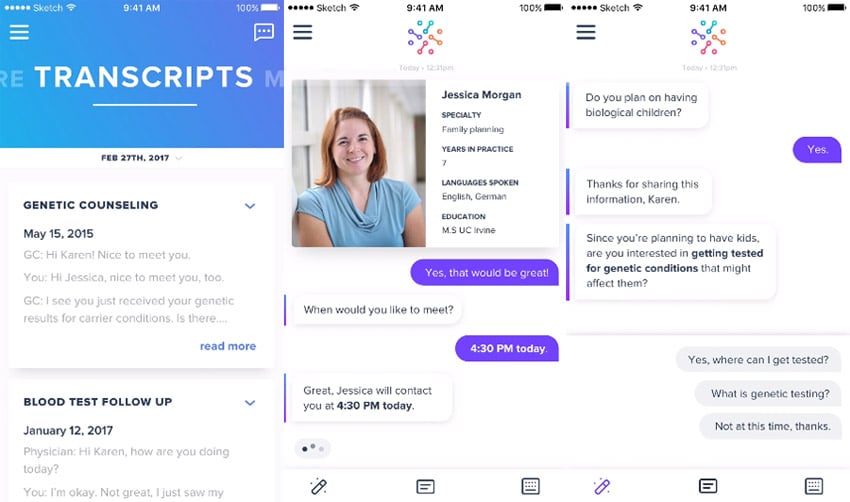The World Health Organization estimates there is a shortage of over seven million physicians, nurses, and other healthcare professionals worldwide, and the gap is widening. Technology could help, and we have seen many interesting companies emerging in the last few years, trying to tackle this huge challenge.
A startup called DOC.AI is the latest to join the party with an advanced natural language processing technology platform using the blockchain to timestamp its datasets and decentralize artificial intelligence.
Envisioned and built by bright minds from Stanford and Cambridge Universities, the company aims to help healthcare companies improve patients’ care and experience by creating the most advanced natural language dialog system that generates insights from combined medical data.
“We are making it possible for lab tests to converse directly with patients by leveraging advanced artificial intelligence, medical data forensics, and the decentralized blockchain,” Walter De Brouwer, founder and CEO of DOC.AI, said in a statement. “We envision extensive possibilities for the use of this technology by doctors, patients, and medical institutions.”
DOC.AI’s platform will provide patients with personalized, AI-powered conversations about their health at any time of day. It will let patients ask the AI questions such as “What should be my optimal Ferritin value based on my iron storage deficiency?” or “How can I decrease my cholesterol in the next 3 weeks?” or “Why was my glucose level over 100 and a week later it is at 93?,” with the software on the backend delivering the answers and additional context for each answer. From there, patients can leverage these conversations to achieve better health outcomes from consultations with their physician.
Over the next twelve months, DOC.AI expects to roll out three natural language processing modules: Robo-Genomics, Robo-Hematology, and Robo-Anatomics, to the industry’s leading medical providers and payors.
The company plans to get money for its operations in a similar way that many blockchain-based projects are funded — by creating digital tokens, called Neurons (NRN), based on the ERC-20 standard.
The plan is to issue Simple Agreements for Future Tokens (SAFTs), which will convert into NRNs upon the launch of the platform. SAFTs will initially be available through a pre-sale process that is expected to start on September 7, 2017. The crowdsale process is expected to start on September 28, 2017.
The total number of NRN to be created will be based on the number of neurons in the human brain, 86 billion, with one NRN representing 100 neurons in the human brain. Approximately 37% of the total number of NRNs is expected to be sold in the SAFT offering. DOC.AI plans to use the funds raised from the sale of SAFTs to further develop its platform and technology.
Finally, it’s worth mentioning that the company has already found its first partner — Deloitte Life Sciences and Healthcare — which is helping DOC.AI to test the Robo-Hematology solution.
Rajeev Ronanki of Deloitte Consulting LLP, principal of Deloitte Life Sciences and Healthcare, remarked, “We are very impressed with DOC.AI’s robo-doctors, which can provide answers to questions on hundreds of blood biomarkers. DOC.AI’s AI-powered platform opens new possibilities for patients and medical organizations by providing more personalized and intelligent healthcare. We are excited to partner with DOC.AI and to be at the forefront of this technology.”


